
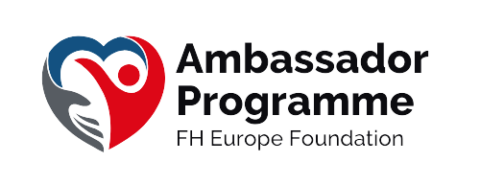
This programme is for passionate individuals who want to make a difference in the lives of those affected by inherited lipid conditions such as Familial Hypercholesterolaemia (HeFH), Homozygous FH (HoFH), elevated Lipoprotein(a) [Lp(a)], and Familial Chylomicronaemia Syndrome (FCS).
Patient ambassadors are individuals with personal experience of a health condition who volunteer to advocate for others facing similar challenges. They can be:
The programme will develop ambassadors who bring real-world information to the table, raise awareness of familial hyperlipidaemias, and advocate for early screening, better diagnosis, and more personalised healthcare.
They will gain the skills and knowledge needed to participate effectively in important conversations, understanding how their stories align with broader goals and contributing productively to these discussions.
We will cover key topics such as the science behind lipid conditions, advocacy skills, patient involvement in research and development, clinical trials, use of data and ethics, personalised prevention and precision medicine, and effective communication strategies. Additionally, we will continue to develop new topics as they arise, such as AI in medicine, to ensure our ambassadors are equipped with the latest knowledge and skills.
Inherited lipid conditions are often underdiagnosed and undertreated. By building knowledge and skills, the programme will help improve awareness and understanding, ultimately leading to better access to diagnosis and treatment, and longer, healthier lives for those affected.
The programme has been developed by our Advisory Group and Faculty, consisting of experts and highly skilled professionals, who provide the latest information and support to effectively engage with stakeholders and make a positive impact. Additionally, a pilot group of ambassadors from the 2024/2025 cohort trialled the programme, offering valuable feedback and insights to refine and enhance the training.
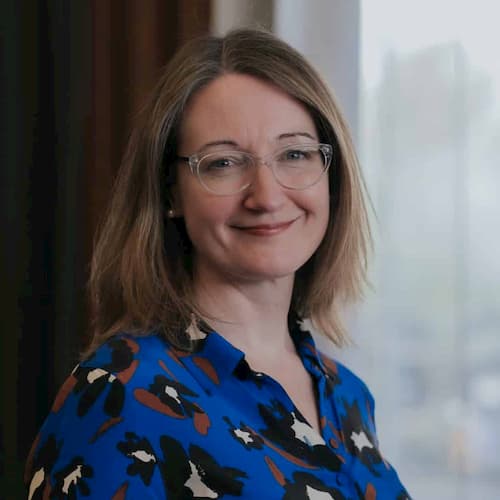



Prof. Fotios Barkas is an Assistant Professor of Internal Medicine at the University of Ioannina, Greece, with a specialised focus on cardiovascular disease prevention, particularly in the areas of lipids, obesity, and diabetes. He earned his medical degree at the University of Ioannina Medical School, followed by an MSc in Clinical Nutrition from Harokopio University in Athens and a PhD on cardiovascular disease risk factors in dyslipidaemia patients.
Since 2011, Prof. Barkas has contributed to clinical and research work at the University Hospital of Ioannina’s Outpatient Lipid & Obesity Clinic. He has also been involved in over 10 multicentre clinical trials addressing dyslipidaemias, obesity, and diabetes. In 2022, he joined the Imperial Centre for Cardiovascular Disease Prevention at Imperial College London, expanding his research collaborations.
An accomplished researcher, Prof. Barkas has published extensively and presented at numerous national and international conferences. He is a participant in the European Atherosclerosis Society Young Fellows Programme and a board member of the Hellenic Atherosclerosis Society.
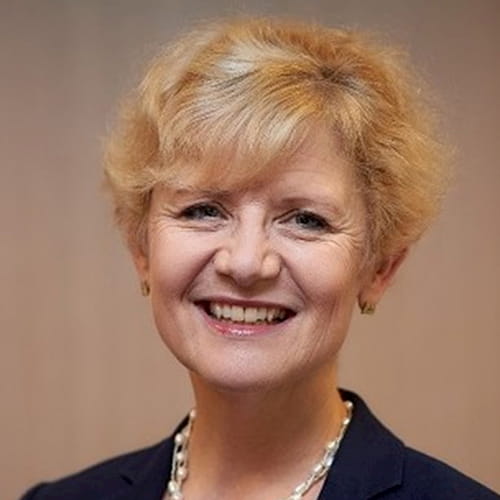

Nicola Bedlington was the first Executive Director and Secretary General of the European Patients Forum from 2006 to 2019. Nicola was also the founding Director of the European Disability Forum, (1996 to 1999). Prior to this, she headed the NGO unit within HELIOS, a European Commission Action Programme promoting equal opportunities for disabled people (1991-1996). From 2004 to 2006, she led the Environment and Schools Initiatives Secretariat (ENSI), an international government-based network set up by OECD focussing on Education for Sustainable Development.
Nicola is based in Vienna, and has recently set up Millwater Partners, a consultancy company focused on health, engagement and sustainability. In this role, she has undertaken several projects in the field of cardiovascular health, including authoring the European Action Plan on Cardiovascular Health. She is also advising a number of global initiatives focused on meaningful patient engagement (Patient Focused Medicines Development (PFMD), From Testing to Targeted Treatment (FT3) and the Global Centre for Person -Centred Value Based Healthcare.
Nicola is the Senior Policy Advisor to the FH Europe Foundation, and supported the recent Campaign on FH Paediatric Screening, authoring the Prague Declaration on FH Paediatric Screening. She is the project lead for the Lp(a) preparatory phase.


Julia Brandts is in cardiology residency at the University Hospital Aachen and honorary research Associate at the Imperial Centre for Cardiovascular Disease Prevention at the School of Public Health, Imperial College London. Her research interests focus on epidemiological evaluation of cardiovascular disease prevention strategies, novel lipid-lowering therapies and management of long-term complications such as heart failure.
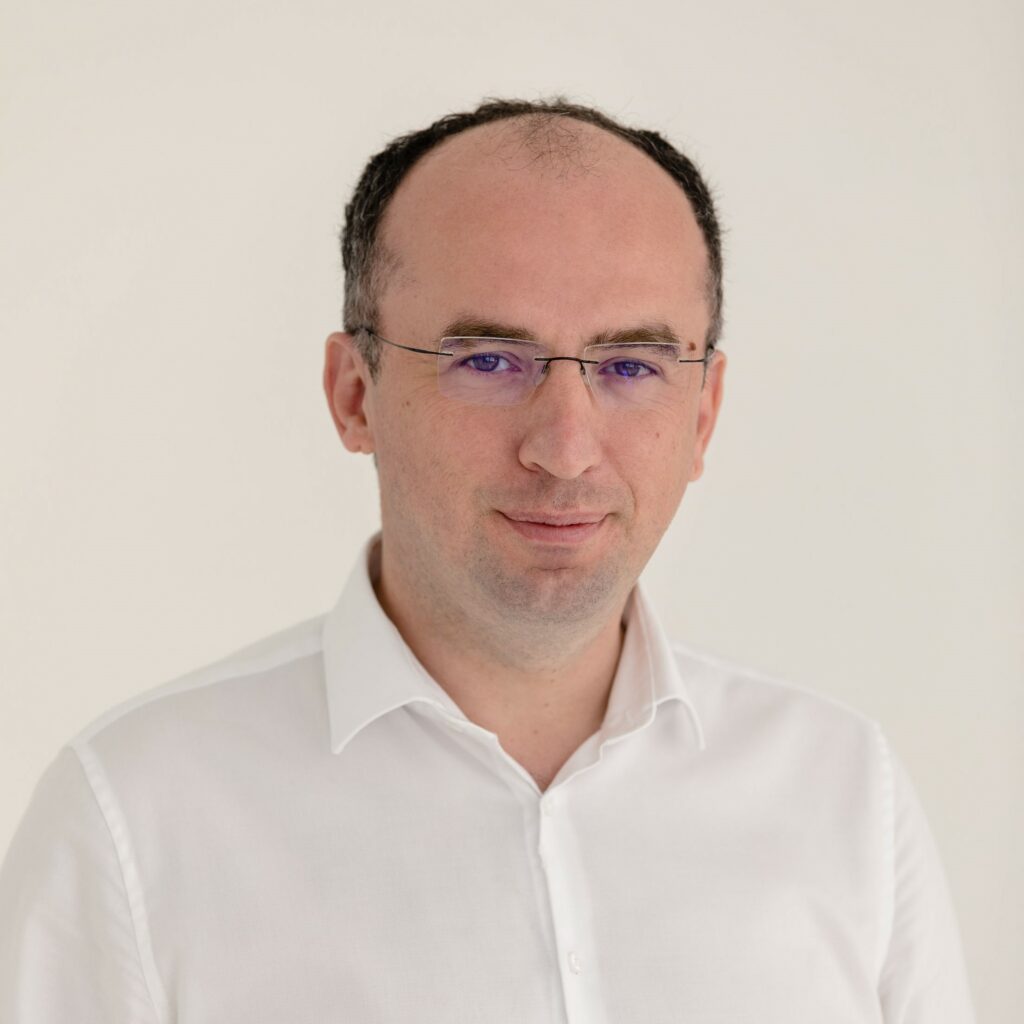

Marius Geantă is President and Co-Founder of the Center for Innovation in Medicine, a research, innovation and health policy oriented civil society organisation.
Dr. Marius Geantӑ is also:
Marius is a pioneer in the field of personalised medicine in Europe and is involved in some pan-European innovative healthcare projects, such as Information Technology: The Future of Cancer Treatment, DigiTwins Consortium, Public Health Genomics Network, PECAN, Building Blocks for Personalised Medicine, ReThinkHPVaccination, National Cancer Competency Center, Uncan EU initiative and others.
As President of the Centre for Innovation in Medicine, Marius is the coordinator of “State of Innovation in Medicine” Annual Report and the organiser of the high-level events - Science meets Politicians (in partnership with Romanian Parliament), and Personalised Medicine Conference (two editions in partnership with Romanian Presidential Administration).
He has more than 15 years of experience and expertise in the field of health and science communication as editor in chief and publisher of many medical journals and health communication platforms. As expert in the field of health innovation, Dr. Marius Geantă is usually invited by the mainstream media (TV, radio, websites) to discuss topics of interest - he has more than 1000 interviews in the context of Covid-19 pandemic.


Dr. Gidding is a paediatric preventive cardiologist, professor of Genomic Health at Geisinger, and former trustee of FH Europe Foundation. Since retiring from clinical practice, his professional activities have focused on advocacy, and research related to hereditary dyslipidaemias, particularly familial hypercholesterolaemia. He is author or co-author on many important scientific statements and guidelines related to familial hypercholesterolaemia and has been active in improving screening in childhood. His research relates to the implementation of existing clinical guidelines related to familial hypercholesterolaemia and the genomics of LDL cholesterol.


Physician, specialising in General Medicine, Clinical Pharmacology and Pharmaceutical Medicine with over 30 years of experience in different senior medical, operational and managerial functions in pharmaceutical industry, CROs and clinical trial sites with a focus on clinical trial design and management, ethical and regulatory aspects.
Since January 2003 she has had her own pharmaceutical development and site management support consulting company.
Dr Klingmann is Chairman of the Board of the European Forum for Good Clinical Practice (EFGCP). Her broad professional background as a physician with experience in patient care, clinical development, site management, regulatory affairs, clinical research ethics, and patient engagement enables Dr Klingmann to bridge the gaps between the interests and skills of all different stakeholders in medicines development with the aim to develop new patient-relevant treatments more efficiently. Having been a founding member of EUPATI, the European Patients Academy on Therapeutic Innovation, she has been and is working on numerous activities to enable and facilitate patient involvement in medicines development in practical terms through patient and sponsor education and guidance development.
Dr Klingmann is currently also Vice-President of PharmaTrain Federation, the not-for-profit organisation focussing on global standardisation and improvement of post-graduate training in medicines development sciences and President-Elect of EUFEMED, the European Federation of Exploratory Medicines. She also teaches different clinical research and regulatory affairs topics in diploma and master courses at the University of Bonn, Germany, University of Basel, Switzerland, and the Université Libre de Bruxelles, Belgium.


Borjana Pervan is a journalist, strategist and public affairs leader who has dedicated her career to uncovering the truth, seeking practical solutions, and creating collaborative environments. While working as a broadcast and print reporter in her country of origin, Bulgaria, she uncovered a major international human trafficking ring. Before joining the World Heart Federation as Strategy and Communications Director, she led the global communications teams of two international organisations, headquartered in Switzerland. She has extensive leadership experience in the fields of environment, nature conservation, climate change, human rights, child protection, supply chain accountability and sustainable business practices. Driven by curiosity and courage, her story is one of connecting people, creating strategic coalitions, and building trust. As a Director of Strategy and Communications at the World Heart Federation, Borjana leads the effort to empower the global cardiovascular community to speak with a strong voice and inspire change globally.




Oana Scarlatescu is Associate Director, Strategic Partnerships, in the Healthcare Systems team at the European Federation of Pharmaceutical Industries and Associations (EFPIA), where she leads the patient engagement and partnerships work. Previously, Oana worked in programmes & partnerships at the World Heart Federation (EHF) and supported development, research & evaluation projects at the Global Alliance for Improved Nutrition (GAIN) in Geneva, Switzerland, as well as judicial cooperation work at the British Embassy in Bucharest, Romania. Oana has an MA in International Relations and a BA in Communications & Public Relations.


Albert Wiegman, Amsterdam, became a paediatrician and member of staff at the Amsterdam University Medical Center in 1991. In 1993, he completed his sub-specialisation in paediatric cardiology, and the Paediatric-Lipid Department came under his care. He started detection and treatment of children with homozygous and heterozygous familial hypercholesterolaemia and other dyslipidaemias in the Netherlands. In 2020, he was appointed Associate Professor and Principal Investigator.
In 30 years, over 4000 children with inherited dyslipidaemias visited his ward. He co-authored around 150 peer-reviewed papers in this field. Since 2024, he was appointed trustee of the Familial Hyperlipidemias Europe Foundation (FH Europe Foundation).


Zanfina Ademi is a Professor of Health Economics and leads the Health Economics and Policy Evaluation Research group at the Faculty of Pharmacy and Pharmaceutical Sciences, Monash University. Their research vision is to improve health and welfare and reduce inequities in society by using high-quality health economic evidence for decision-making. Prof. Ademi is currently a member of the Economics Sub Committee of the Pharmaceutical Benefits Advisory Committee which assesses clinical and economic evaluations of medicines submitted for listing on the Pharmaceutical Benefits Scheme (PBS). Their research has impacted policy decision-making processes and attracted $44.6M in funding. Prof. Ademi has published >170 original publications, including >33,000 citations (FWCI of 26.66); 50% published in the top 1% most viewed worldwide, 1/2 as first, co-first, and senior author. Prof Ademi’s work is published in top-tier journals, BMJ, NEJM, Lancet, JAMA Cardiology, JAMA Paediatrics, European Heart Journal, Neurology, Diabetes Care, PharmacoEconomics and Value in Health. Their research has led to changes in many clinical guidelines and policies: lipid management; listing of services on the Medical Benefits Scheme [MBS]); heart failure therapies (listing by PBS and Federal Office of Public Health [FOPH], Switzerland); cardiovascular disease PBS listing; kidney disease [KDIGO] guidelines; listing of new hyperkalaemia drug to FOPH, Sweden, Switzerland, Scotland and UK; Lifestyle interventions; listing of herpes zoster vaccine [FOPH] and; evidence of low-value care to disinvest combination therapy for Alzheimer’s disease.
Her work in familial hypercholesterolaemia provided evidence of the cost-effectiveness of family genetic testing followed by treatment for familial hypercholesterolaemia in Australia. This model supported a successful Medical Services Advisory Committee application recommending genetic screening as a reimbursed item. Moreover, their work on genetic testing in children provided evidence for the first time that testing children and treating them early in life was a cost-saving over their lifetime.
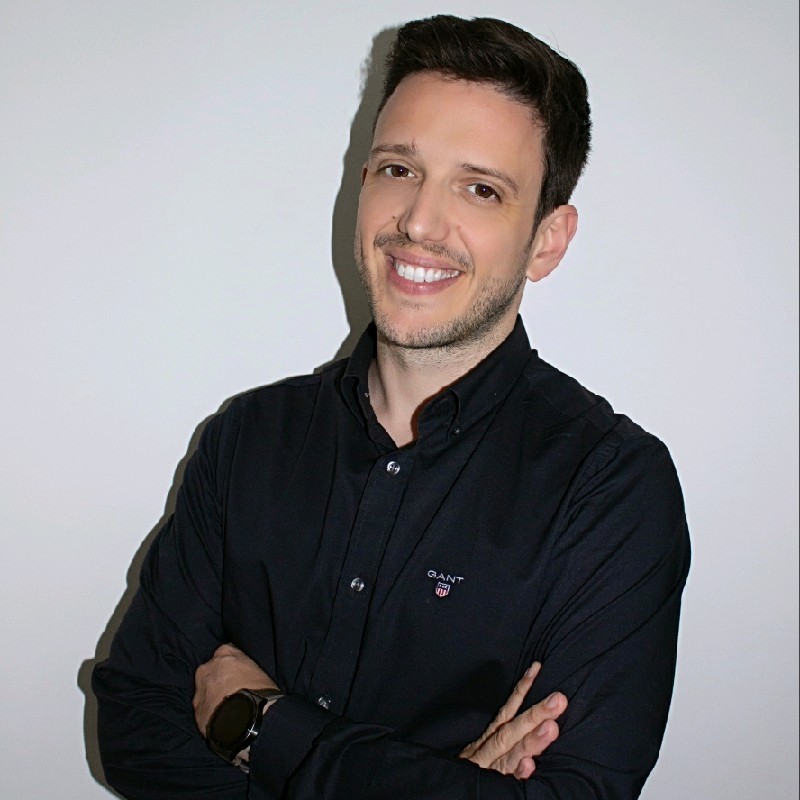

Prof. Fotios Barkas is an Assistant Professor of Internal Medicine at the University of Ioannina, Greece, with a specialised focus on cardiovascular disease prevention, particularly in the areas of lipids, obesity, and diabetes. He earned his medical degree at the University of Ioannina Medical School, followed by an MSc in Clinical Nutrition from Harokopio University in Athens and a PhD on cardiovascular disease risk factors in dyslipidaemia patients.
Since 2011, Prof. Barkas has contributed to clinical and research work at the University Hospital of Ioannina’s Outpatient Lipid & Obesity Clinic. He has also been involved in over 10 multicentre clinical trials addressing dyslipidaemias, obesity, and diabetes. In 2022, he joined the Imperial Centre for Cardiovascular Disease Prevention at Imperial College London, expanding his research collaborations.
An accomplished researcher, Prof. Barkas has published extensively and presented at numerous national and international conferences. He is a participant in the European Atherosclerosis Society Young Fellows Programme and a board member of the Hellenic Atherosclerosis Society.


Nicola Bedlington was the first Executive Director and Secretary General of the European Patients Forum from 2006 to 2019. Nicola was also the founding Director of the European Disability Forum, (1996 to 1999). Prior to this, she headed the NGO unit within HELIOS, a European Commission Action Programme promoting equal opportunities for disabled people (1991-1996). From 2004 to 2006, she led the Environment and Schools Initiatives Secretariat (ENSI), an international government-based network set up by OECD focussing on Education for Sustainable Development.
Nicola is based in Vienna, and has recently set up Millwater Partners, a consultancy company focused on health, engagement and sustainability. In this role, she has undertaken several projects in the field of cardiovascular health, including authoring the European Action Plan on Cardiovascular Health. She is also advising a number of global initiatives focused on meaningful patient engagement (Patient Focused Medicines Development (PFMD), From Testing to Targeted Treatment (FT3) and the Global Centre for Person -Centred Value Based Healthcare.
Nicola is the Senior Policy Advisor to the FH Europe Foundation, and supported the recent Campaign on FH Paediatric Screening, authoring the Prague Declaration on FH Paediatric Screening. She is the project lead for the Lp(a) preparatory phase.
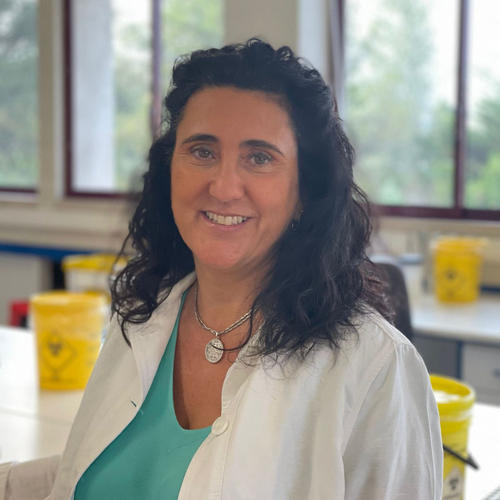
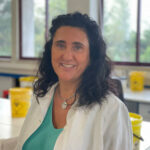
Mafalda Bourbon is a Principal Researcher at the National Institute of Health (INSA) in Portugal and a researcher and invited professor at the Biosystems & Integrative Sciences Institute (BioISI), Faculty of Sciences, University of Lisbon. She completed her PhD in Clinical Sciences in 2006 at the Imperial College Faculty of Medicine, Hammersmith Campus. She is the Chair of the Familial Hypercholesterolaemia Variant Curation Expert Panel at the Clinical Genome Resource and the National Lead Investigator for two international FH registries: the FH Studies Collaboration and the International Children FH Registry.
She is also a member of the Public Health Group at FH Europe Foundation, a board member of the Iberoamerican FH Network, and part of the Scientific Committee of the Portuguese Atherosclerosis Society. Her primary research field is genetic dyslipidaemia, with a special focus on Familial Hypercholesterolaemia (FH). Her laboratory develops and applies methods to identify, functionally characterise, and interpret variants found in patients with a clinical diagnosis of FH and other dyslipidaemias.
Mafalda also works in cardiovascular prevention and risk, leading population-based studies on genetic dyslipidaemias and monogenic diabetes, providing genetic diagnoses for these disorders.
Mafalda Bourbon is the founder and coordinator of the Portuguese Familial Hypercholesterolaemia Study (1999-present), the Rare Dyslipidaemia Study (2012-present), the Molecular Study of Monogenic Diabetes (2015-present), and the e_COR Study on cardiovascular risk factors in the Portuguese population (2012-2019). She is currently working on a personalised medicine model for FH and is the project leader of the PerMedFH consortium, “Personalising Diagnosis and Treatment for Familial Hypercholesterolaemia Patients.” Another focus of her research is the genetic aetiology behind the FH phenotype. She has published more than 70 articles in international scientific journals and contributed to three book chapters.


Julia Brandts is in cardiology residency at the University Hospital Aachen and honorary research Associate at the Imperial Centre for Cardiovascular Disease Prevention at the School of Public Health, Imperial College London. Her research interests focus on epidemiological evaluation of cardiovascular disease prevention strategies, novel lipid-lowering therapies and management of long-term complications such as heart failure.


Marius Geantă is President and Co-Founder of the Center for Innovation in Medicine, a research, innovation and health policy oriented civil society organisation.
Dr. Marius Geantӑ is also:
Marius is a pioneer in the field of personalised medicine in Europe and is involved in some pan-European innovative healthcare projects, such as Information Technology: The Future of Cancer Treatment, DigiTwins Consortium, Public Health Genomics Network, PECAN, Building Blocks for Personalised Medicine, ReThinkHPVaccination, National Cancer Competency Center, Uncan EU initiative and others.
As President of the Centre for Innovation in Medicine, Marius is the coordinator of “State of Innovation in Medicine” Annual Report and the organiser of the high-level events - Science meets Politicians (in partnership with Romanian Parliament), and Personalised Medicine Conference (two editions in partnership with Romanian Presidential Administration).


A pediatric preventive cardiologist, professor of Genomic Health at Geisinger, and trustee of FH Europe. Since retiring from clinical practice, his professional activities have focused on advocacy, and research related to hereditary dyslipidemias, particularly familial hypercholesterolemia. He is an author or co-author on many important scientific statements and guidelines related to familial hypercholesterolemia and has been active in improving screening in childhood.
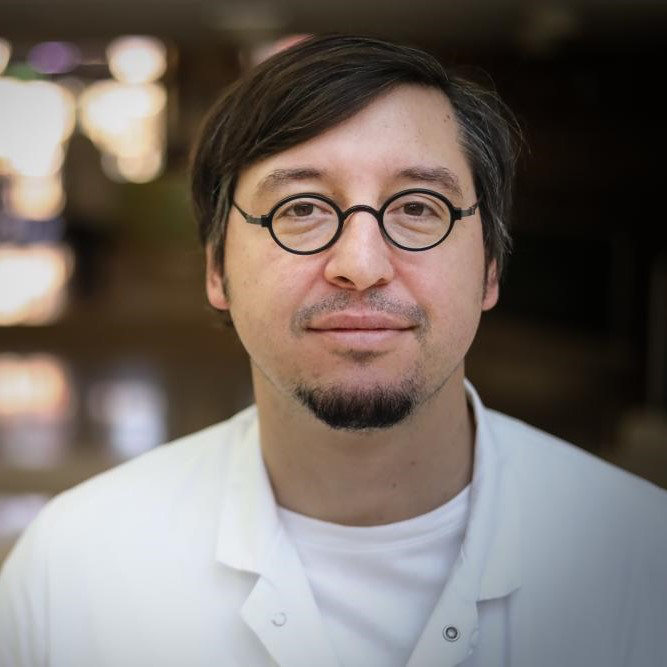
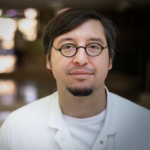
Urh Grošelj, MD, PhD, is an Assistant Professor of Pediatrics at the Medical Faculty, University of Ljubljana, Slovenia. He is also a member of the Republic of Slovenia National Medical Ethics Committee. Dr. Grošelj has made significant contributions to the fields of pediatric lipidology and newborn screening, particularly in the study of familial hypercholesterolemia and rare metabolic diseases. He has authored numerous scientific publications and has been involved in the development of national and international screening programs. His work has earned him recognition, including the Prešeren Award and the title of "Emerging Leader" by the World Heart Federation.
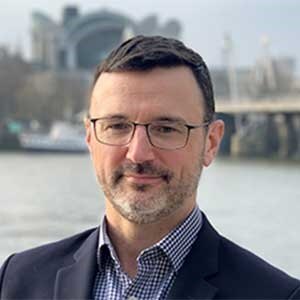

In the last 10 years Ed has led many cardiovascular policy projects and campaigns at national, European and Global level, working alongside leading patient and clinical experts. This has resulted in many high-level position papers and peer-reviewed articles which have helped to drive changes in government policies and also to guide the advocacy community towards its goals. He is deeply interested in accelerating change in our health care systems to deliver cardiovascular prevention and disease management at scale, and he is particularly active in heart failure, cholesterol, cardiomyopathy, rare cardiac conditions and heart valve disease.


A world-renowned expert in cardiovascular genetics, a field in which he has worked for over 40 years. He worked at University College London from 1991, where he was the British Heart Foundation Professor of Cardiovascular Genetics, retiring in September 2015 and is the BHF UCL Emeritus Professor of Cardiovascular Genetics. He directed a major research programme to develop and implement molecular strategies to study the causes and clinical and psychological consequences of Familial Hypercholesterolaemia (FH).


Prof. Florian Kronenberg is a Full Professor and Director of the Institute of Genetic Epidemiology at the Medical University of Innsbruck. He is renowned for his research in genetic and clinical epidemiology, particularly on lipoprotein(a) and its role in cardiovascular diseases. Prof. Kronenberg has published over 500 papers and has been recognised as a member of the Academia Europaea. His recent work includes contributions to the European Atherosclerosis Society's consensus statement on lipoprotein(a) and studies on the genetic factors influencing cardiovascular health.
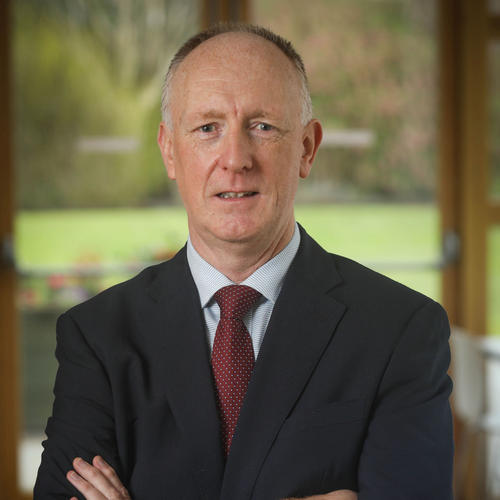

Formerly Chief Executive of the Irish Heart & Stroke non-profit organization, Croí (www.croi.ie) from 1992–2023 and the Irish National Institute for Prevention and Cardiovascular Health (www.nipc.ie) from 2014–2023. He has over 30 years leadership, management and development experience in the ‘not-for-profit’ sector in the field of cardiovascular health – working across service development; prevention, rehabilitation; education and training; research; patient engagement and patient advocacy. He is a founder of Ireland’s first Heart & Stroke Centre dedicated to cardiovascular health and wellbeing which has been accredited by the European Society of Cardiology as a European Centre of Excellence in CVD prevention.
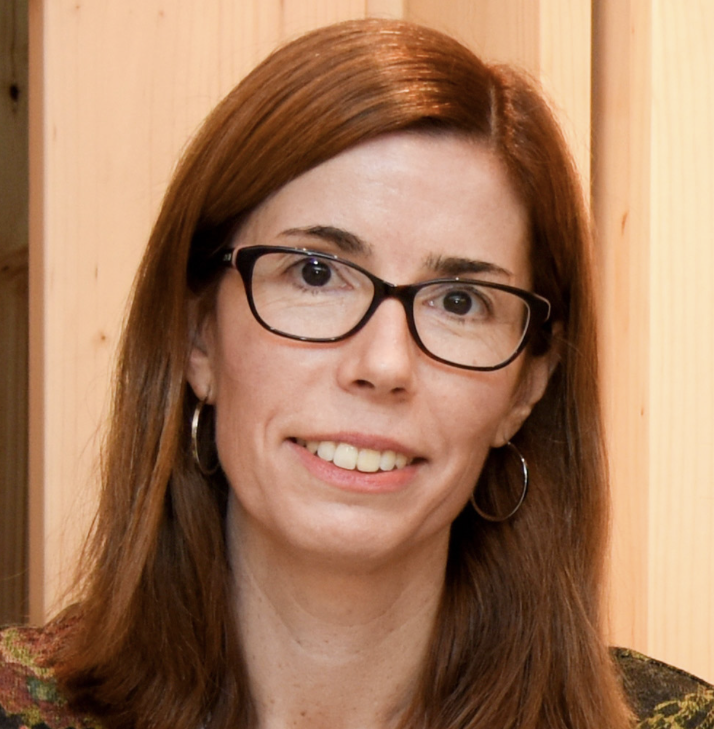

Dr Nafria Escalera is Head of the Patient Engagement University Department at Saint Joan de Déu Barcelona Children's Hospital
She has long experience in the field of the involvement of patients and families in research initiatives. Her PhD was in the patient involvement in paediatrics field, specifically working in the rights of the patients accessing to cross-border access clinical trials.
Funder and member of the Steering Committee of eYPAGnet (European Young Patients Advisory Group Network), Coordinator of Kids Barcelona (YPAG of Sant Joan de Déu Children’s Hospital), Co-Chair of Children’s Medicines Working Party of EFPGCP and Chair of the Cross-Border Access to Clinical Trials working group of EnprEMA (European Network of Paediatric Research of EMA).
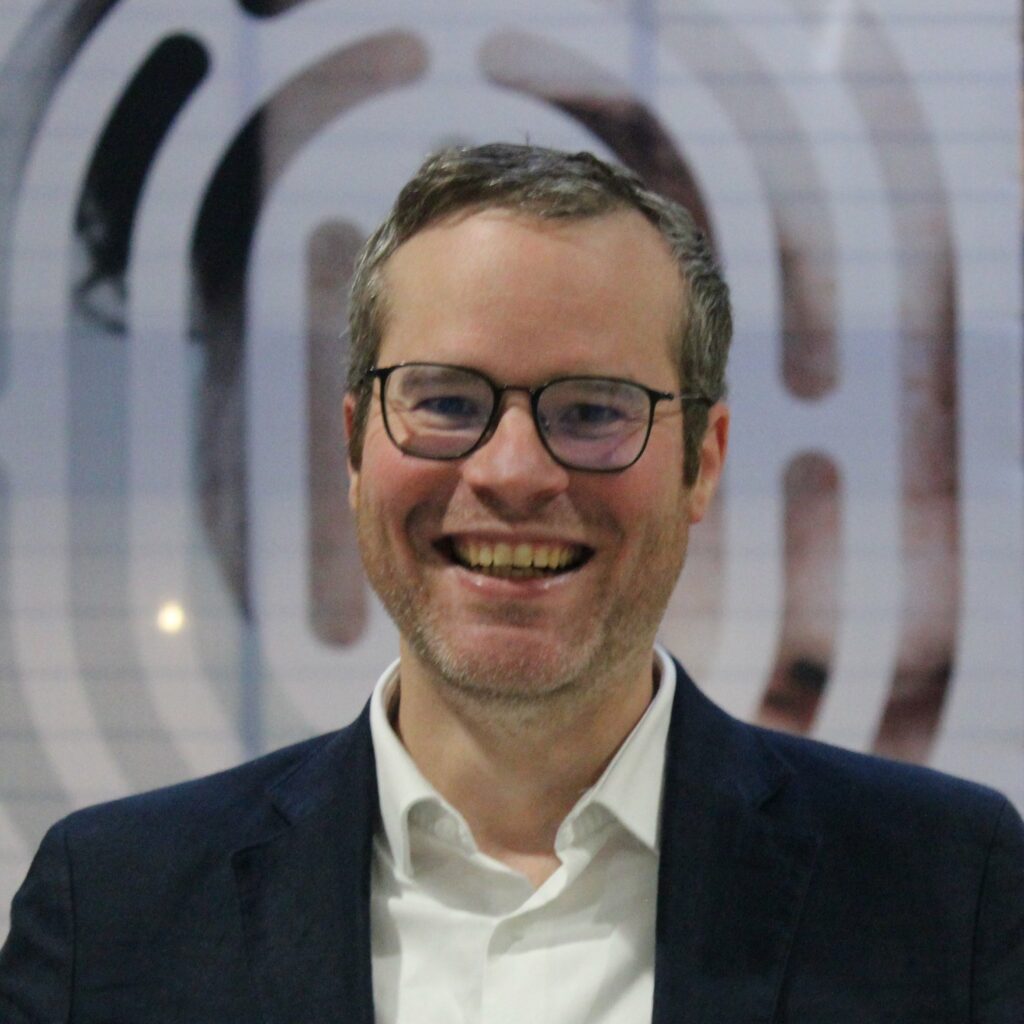

Dr Simon Pfisterer is a Principal Investigator at the University of Helsinki and the Chief Scientific Officer at Moncyte Ltd. He leads research in the Department of Anatomy at the University of Helsinki and has played a pivotal role in developing innovative solutions for high cholesterol through Moncyte, a spinout company from the university.


Christophe Stevens is a Software Engineer and Data Manager at Imperial College London's Faculty of Medicine, School of Public Health. With over a decade of experience in the Medical Research and MedTech industries, he specialises in the prevention of cardiovascular diseases. Christophe's expertise spans software engineering, data management, and data science, making him a valuable asset in handling sensitive medical data and developing regulatory-compliant medical devices.


Albert Wiegman, Amsterdam, became a paediatrician and member of staff at the Amsterdam University Medical Center in 1991. In 1993, he completed his sub-specialisation in paediatric cardiology, and the Paediatric-Lipid Department came under his care. He started detection and treatment of children with homozygous and heterozygous familial hypercholesterolaemia and other dyslipidaemias in the Netherlands. In 2020, he was appointed Associate Professor and Principal Investigator.
In 30 years, over 4000 children with inherited dyslipidaemias visited his ward. He co-authored around 150 peer-reviewed papers in this field. Since 2024, he was appointed trustee of the Familial Hyperlipidemias Europe Foundation (FH Europe Foundation).
We are thrilled to celebrate the inaugural cohort of our Certified Ambassador Programme. This initiative was designed to empower our community members, giving them the confidence to sit alongside experts and be recognised as experts themselves.
Starting with a vision, we developed a comprehensive plan, consulted with an amazing panel of advisors, and assembled a dedicated faculty. Now, we proudly present our first pilot group, who have provided invaluable feedback on making the programme more accessible and tiered.
Our goal is to develop individuals who aspire to elevate not only themselves and their communities but also the entire FH Europe Foundation community. Our Ambassadors come from diverse backgrounds and have different levels of engagement—some are enthusiastic cheerleaders, while others are driven to enact significant change.
The Certified Ambassador Programme focuses on:
Our Ambassadors are influencers, shakers, and movers, making an impact through expert advice, speaking engagements, campaigning, and advocating for better access, care, understanding, and outcomes for the entire community.
Our Ambassadors represent a wide range of stakeholders from the UK, Greece, the Netherlands, Switzerland, France, Ireland, Australia, and more. They are individuals living with the condition and working across diverse fields such as social work, healthcare, business, and education.

Join us in our mission to improve the lives of those affected by inherited lipid conditions. Together, we can create a healthier future for everyone.
For more information and to apply, visit our Ambassador Website.

Funding for this project was provided by Perfecto (Co-funded by the European Union), Novartis and Ultragenyx.
We acknowledge the support of the funding organisations in facilitating the execution of this programme. We affirm that its content was developed independently, without influence or involvement from funders.